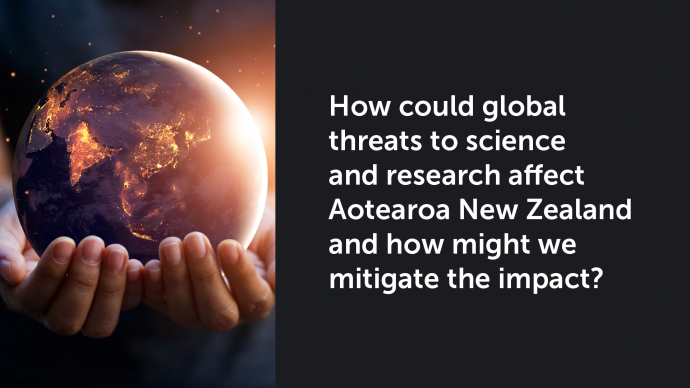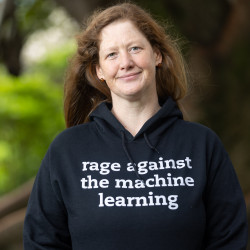Expert perspective: Professor Nicola Gaston FRSNZ

Professor Nicola Gaston FRSNZ, a physicist and scientific leader, challenges New Zealand to be more ambitious:
"The unprecedented budget cuts to US science that we have seen make headlines over the past weeks are only part of a shifting international landscape. While announcements have been made, in particular by European countries, of funding and recruitment measures that will attract some researchers to move, the sheer scale of the cuts – and of the federal research system in the USA – make it impossible for the rest of the world to simply absorb this change.
At the same time, ongoing reforms in our science sector coupled with chronic underfunding make it unlikely that we will reap much of a competitive advantage.
These changes are exacerbated by significant changes in the international research landscape. There was increasing doubt about the robustness of the peer-reviewed publication record – due to a range of factors from predatory publication to the existence of paper mills – even before the use of artificial intelligence became widespread. Now, AI-written articles and citation decisions will lead to even further shifts in our understanding of what the scientific record is.
In some of these challenges there may be opportunities to be found. After all, expectations about publication volume are placed on researchers by the community itself: perhaps it is time that we revisited what scientific productivity looks like. We could certainly reset these norms by, for example, capping the number of publications a researcher could put on their CV for funding or promotion purposes in any given year, and thereby incentivising both publication quality and other forms of output.
As a small country we are well placed to innovate. But whether we have the capacity to do this right now, in the midst of a rolling science sector review and unanswered questions about the future of our university sector, is another question entirely.
Perhaps this is an opportunity to reimagine how we think about the necessary scale of science and research funding that our country needs. Countries of circa 5 million people in Europe include Norway, Ireland, Finland and of course Denmark, which successfully shifted away from a similarly dairy-based economy decades ago. In 2023 they averaged an investment of 16.6B NZD in research, which needs to be compared against our very paltry 6.4B NZD.
In contrast to the usual comparison as a percentage of GDP, making what is effectively a per capita comparison tells us something about the critical mass needed:
What is the scale of the research ecosystem we need to create to arrive at the kind of tipping point that would make real economic impact?
So how about it: a meaningful investment target based on per capita comparisons with the OECD?"
Published May 2025
 Professor Nicola Gaston FRSNZ is Director of the MacDiarmid Institute for Advanced Materials and Nanotechnology. Her research group at the University of Auckland simulates the quantum-mechanics of the electronic and thermodynamic behaviour of nanoscale materials. Professor Gaston has been awarded the Society’s Thomson Medal for leadership, and has been President of the New Zealand Association of Scientists.
Professor Nicola Gaston FRSNZ is Director of the MacDiarmid Institute for Advanced Materials and Nanotechnology. Her research group at the University of Auckland simulates the quantum-mechanics of the electronic and thermodynamic behaviour of nanoscale materials. Professor Gaston has been awarded the Society’s Thomson Medal for leadership, and has been President of the New Zealand Association of Scientists.

